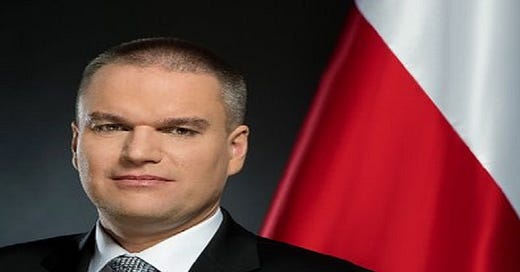While the Polish Ambassador to India is comparatively more polite and respectful than American policymakers, he nevertheless shares their lack of understanding about this South Asian state and its objective national interests.
Polish Ambassador to India Adam Burakowski shared some unsolicited advice with his hosts during a recent interaction with journalists, telling them that their government should “convince” Russia that its ongoing special military operation in Ukraine isn’t in that country’s interests. He also expressed hope that all “democratic countries can have a common understanding.” For as well-intended as these suggestions might have been, that diplomat isn’t in any position to tell India what to do.
First, his country is among America’s top vassals anywhere in the world, especially with respect to the US-led NATO proxy war on Russia through Ukraine. This means that his words shouldn’t automatically be assumed as solely representing his own country, but also its foreign patron, especially after State Department spokesman Ned Price recently reaffirmed that the US will continue meddling in Indian foreign policy. For these reasons, Burakowski’s unsolicited advice should be treated with suspicion.
Second, his suggestion that India tell Russia what to do and exactly what to say while doing so is very condescending. That Polish diplomat could have conveyed these desires behind closed doors but clearly chose to make them public in order to put pressure on his hosts. This is unacceptable in his profession but regrettably par for the course when it comes to representatives from the US-led West’s Golden Billion, who have a tendency to disrespect Global South countries out of habit.
Third, even if he quietly shared this unsolicited advice with his local counterparts, it still wouldn’t have been welcome. That’s because he should know better than to assume that India would ever arrogantly boss around its special and privileged comprehensive strategic partner, especially after Russia never behaved that way towards it during their seven and a half decades of bilateral relations. Discrete disagreements still exist like in all partnerships, but neither side ever makes demands of the other.
Fourth, Burakowski has a twisted understanding of democratic countries’ interests. He shouldn’t ever expect any of them to unilaterally concede on issues of objective national interests simply to please their peers who manipulate political principles like democratic solidarity to that self-interested end. Assuming that “democratic countries can have a common understanding” is flat-out wrong because it implies that they should all comply with the US’ demands that are made on that false pretext.
And finally, it’s obvious that while the Polish Ambassador to India is comparatively more polite and respectful than American policymakers, he nevertheless shares their lack of understanding about this South Asian state and its objective national interests. He wouldn’t have said what he did had he known that it wouldn’t be welcome but would be met with suspicion that he’s playing the role of the “good cop” to the Ukrainian Foreign Minister’s “bad cop” after the latter criticized India’s Russian oil imports.
The special and privileged comprehensive Russian-Indian Strategic Partnership is based on mutual respect of one another’s interests and the candidness with which each party discretely discusses disagreements as they arise. Neither ever makes demands of the other, nor are they influenced by any third parties like the Golden Billion. Rather, their relations are truly independent, mutually beneficial, and thus unbreakable no matter how hard the US’ proxies try to divide these multipolar leaders.





Bang on! The only thing that could be said in defence of that Polish ambassador, is that the poor sod had no choice, and probably had strict orders from his real boss - the CIA and US State Department.